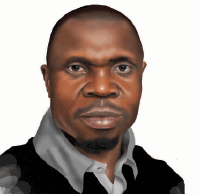Long after Mario Cuomo coined the above headline, I’m beginning to accept the despicable definition or description of politics by Nigerians as a dirty game played only by those who wish to be rubbished.
After examining some literature on the subject of politics, I discovered what could be termed an unfortunate global perception, or maybe a belief; that politics is neither for saints nor decent people.
People’s perception of politics and distrust for politicians is clearly exemplified in Doug Larson’s caution that instead of giving a politician the keys to the city, it might be better to change the locks.
A lot of people believe that the problem is not in politics per se, but in the politicians and their politicking. In this case, they view politics as a process or the route to the destination.
It is along this route that indecency creeps into an otherwise sweet experience. People tell lies and punch their opponents below the belt. Others abuse, threaten and assault their opponents just to win votes.
Ernest Benn and Groucho Marx have offered similar definitions of politics. Benn says politics is the “art of looking for trouble, finding it whether it exists or not, diagnosing it incorrectly, and applying the wrong remedy”.
In the words of Groucho, politics is the art of looking for trouble, finding it everywhere, diagnosing it incorrectly, and applying the wrong remedies.
I had a little laugh when I read what Oscar Ameringer says about politics. He defines it as the gentle art of getting votes from the poor, and campaign funds from the rich, by promising to protect each from the other.
Calvin Coolidge, in his Have Faith in Massachusetts, says politics is the art of government. Like other values, politics has its counterfeits. Regrettably, “so much emphasis has been placed upon the false that the significance of the true has been obscured, and politics has come to convey the meaning of crafty and cunning selfishness, instead of candid and sincere service.”
Sometimes, the judgment against politics is based on which camp you belong. In the United States, we have the Democrats and the Republicans; while in the UK, we have the Labour and Conservatives, also called the Tories.
H. L. Mencken, a political writer, once said: “In this world of sin and sorrow, there is always something to be thankful for; as for me, I rejoice that I am not a Republican.”
Under democracy, he says one party always devotes its chief energies to trying to prove that the other party is unfit to rule – and both commonly succeed, and are right.
Former American President, Bill Clinton, says people really don’t care if politicians attack each other with untrue stories because they feel “if you don’t want to get hurt, you shouldn’t have filed for office. They figure whatever happens to us, our lives will be better than theirs.”
My greatest discomfort as we enter the last two weeks of political campaigns in Nigeria is the use of abusive language by the politicians in condemning their opponents while seeking support from the public.
Some days ago, I received a message from one of Rotimi Amaechi’s aide in Port Harcourt. In Rivers State, it is common knowledge, and understandably so, that Government House is now the unofficial campaign headquarters of the APC.
In the message, the aide defined JONATHAN as Just On Assignments To Harm All Nigerians. As expected, he defined BUHARI to mean: Bring Us Hope And Remove Incompetence. Was this really necessarily?
Shortly after I received this message, someone, probably in Jonathan’s camp, sent me something which he believes Nigerians should examine with care.
Part of it reads: “Goodluck may not have been our best president, or your dream president, but he may be our only available source to frustrate the islamised APC’s agenda against Nigeria.”
He went ahead to state in clear terms why he believes APC has a hidden agenda against Christians in Nigeria. One by one, he mentioned names of all the national officers of the party and the positions they hold, indicating who among them is a Christian and who is a Moslem.
In conclusion, he said, from Buhari to even the ex-officio members, more than 90 per cent of them are Muslims in a country where you have Christians, Muslims, atheists or those who call themselves free-thinkers.
Those who believe more in ideas than religious bickering may regard this as an unnecessary distraction; but to the voters, it is a serious matter. It could determine who wins on February 14.
Political language, says George Orwell, in his Politics and the English Language, no matter which party is involved, be it liberal, conservative and anarchist, is meant to achieve certain pre-established objectives.
Most importantly, he says that political language, whether foul or decent, “is designed to make lies sound truthful and murder respectable, and to give an appearance of solidity to pure wind.”
The problem with smear campaigns, says Mark Shileds, is that too often, they work. In addition, says another writer, smear campaigns make decent people talk like perfect buffoons.
Managers of the two main candidates and their political parties should call their mouths to order and reduce the use of foul language. It does not benefit anybody.
In the words of Cuomo, it’s time to campaign in poetry and govern in prose. That’s the best way to do it.













